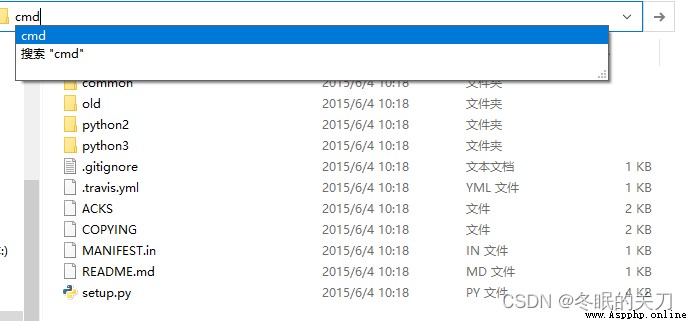# -*- coding: utf-8 -*-
import os
import sys
import win32file
import win32con
ACTIONS = {
1 : "Created",
2 : "Deleted",
3 : "Updated",
4 : "Renamed from something",
5 : "Renamed to something"
}
# Thanks to Claudio Grondi for the correct set of numbers
FILE_LIST_DIRECTORY = 0x0001
if __name__ == '__main__':
path_to_watch = "."
if len(sys.argv) == 2:
path_to_watch = sys.argv[1]
hDir = win32file.CreateFile (
path_to_watch,
FILE_LIST_DIRECTORY,
win32con.FILE_SHARE_READ | win32con.FILE_SHARE_WRITE | win32con.FILE_SHARE_DELETE,
None,
win32con.OPEN_EXISTING,
win32con.FILE_FLAG_BACKUP_SEMANTICS,
None
)
while 1:
#
# ReadDirectoryChangesW takes a previously-created
# handle to a directory, a buffer size for results,
# a flag to indicate whether to watch subtrees and
# a filter of what changes to notify.
#
# NB Tim Juchcinski reports that he needed to up
# the buffer size to be sure of picking up all
# events when a large number of files were
# deleted at once.
#
results = win32file.ReadDirectoryChangesW (
hDir,
1024,
True,
win32con.FILE_NOTIFY_CHANGE_FILE_NAME |
win32con.FILE_NOTIFY_CHANGE_DIR_NAME |
win32con.FILE_NOTIFY_CHANGE_ATTRIBUTES |
win32con.FILE_NOTIFY_CHANGE_SIZE |
win32con.FILE_NOTIFY_CHANGE_LAST_WRITE |
win32con.FILE_NOTIFY_CHANGE_SECURITY,
None,
None
)
for action, file in results:
full_filename = os.path.join (path_to_watch, file)
print full_filename, ACTIONS.get (action, "Unknown")
在啟動目標應用的時候,喚起此腳本。
每次文件系統發生變化都會寫入中轉數據文件(管道)
每隔一段時間,目標應用讀入文件中的全部中轉數據,然後清除數據。
之後對讀入的數據進行一行一行的處理。
先進行舊源文件的釋放,然後熱更新源文件。
不阻塞當前進程運行的方法 os.system(“start python …”)
pyinotify 支持庫pyinotify源碼倉庫

python setup.py install

win64不支持這個庫,寄了